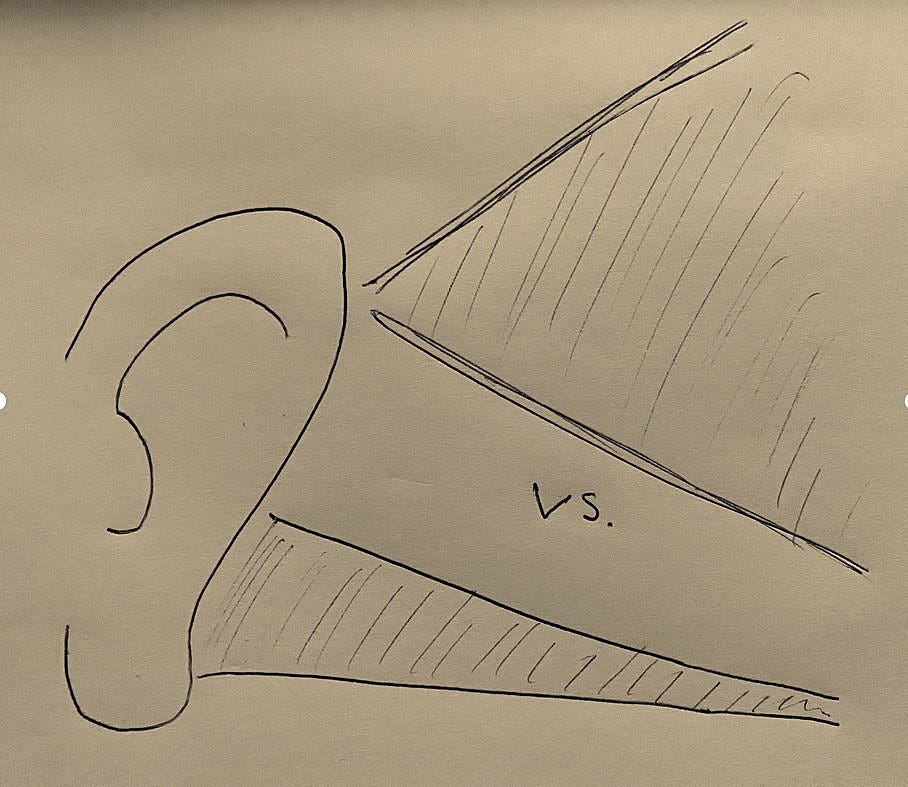Are You Listening?
Two Modes: Exploring vs. Pinpointing
politicwise is where politics meets personal development. Become a free subscriber and get evidence-based ideas and tools for personal growth and wiser politics. For those whose life's work is more than a job.
When I started my coaching training, one of the first exercises was on listening. It’s an essential skill for a coach. And I believe it’s a skill we can all use more and better to make an impact.
I found that the way I listen as a consultant is very different from how I listen as a coach. As a consultant I listen to pinpoint, while as a coach I listen to explore – most of the time.
Listening to pinpoint is all about getting to the bottom of things as efficiently as possible. You have a hypothesis, an educated guess and you listen to confirm or disprove it (often with an unconscious bias toward confirming).
When we listen to explore, we are curious. We are not attached to preconceived notions on the topic. Rather than running down the first rabbit hole, listening for a particular rabbit to climb out of a particular hole, we wait to see what else there is. For example, we do not jump into giving someone advice on ‘time management’ because we believe that’s the issue and we believe we’ve been there, we’ve seen it. Even if someone asks us to give advice on time management, it’s worth first exploring what that means: what’s challenging about time management for them? When have they managed their time well in the past? How did that look like?
And when, while listening, thoughts pop up, we choose whether to pursue them further or let them go and keep listening. A mindful state is probably what comes closest to this kind of listening.
Listening to explore can be difficult for someone used to giving advice, always wanting to have an answer. It takes discipline to not give in to saying what’s on our mind and rather hear what the other has to say… just for a moment longer.
Magic happens when we use both ways of listening, and use them in the right situation. Early on in a project, a consultant may want to listen to explore rather than following the first hunch. And a coach needs to pinpoint when a client is saying one thing but hesitating on following through.
How are you listening to your colleagues, political opponents, friends, and family?



